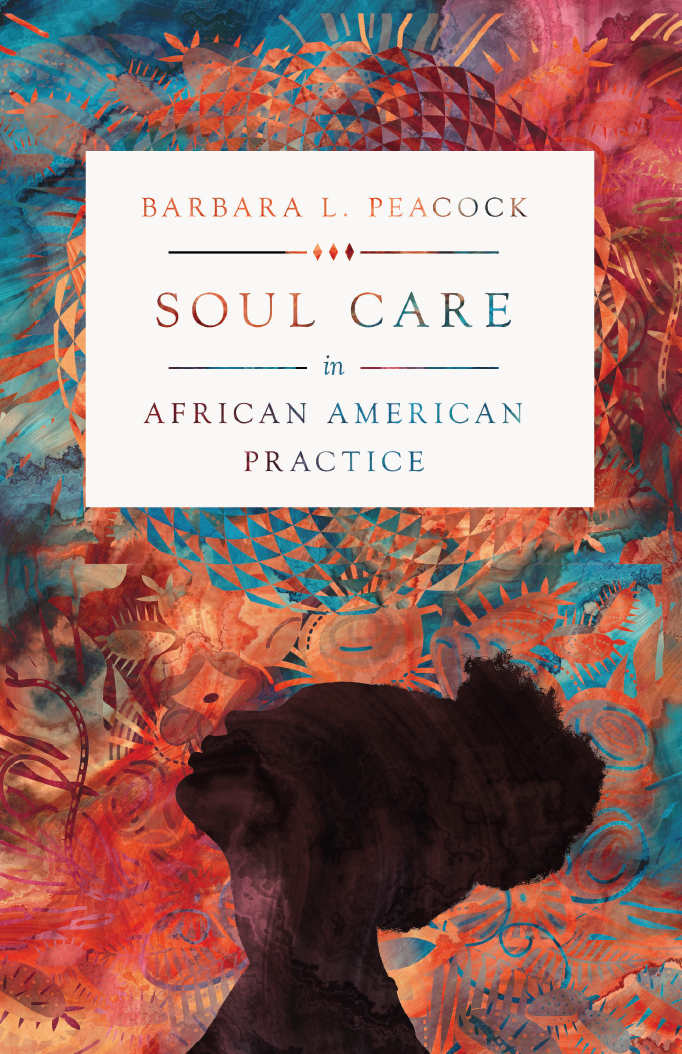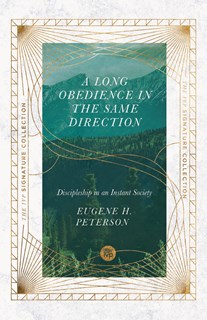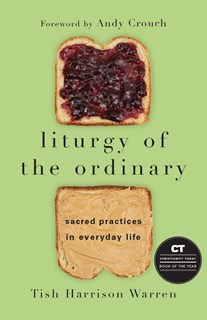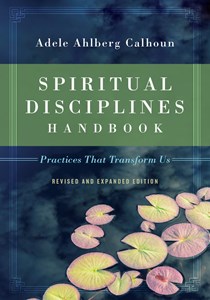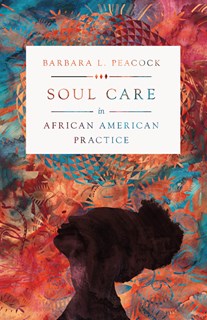Spiritual Formation and Books: Reading as a Spiritual Practice
By Cindy Bunch, IVP Vice President, Editorial
How do we grow closer to God? How can we become more like him? How do we feel his presence in our lives?
The life of faith is full of these questions. As Christians, we desire to consistently grow in our relationship with God. Devoting ourselves to spiritual formation is one way that we can draw closer to God throughout our journey with Christ. But what does that look like?
When we began the IVP Formatio® line in 2006, we chose the nautilus—one of the sea's oldest creatures—for our logo because of its rich symbolic meaning. Beginning with a tight center, its remarkable growth pattern can be seen in the ever-enlarging chambers that spiral outward. The nautilus represents the deep inward work of spiritual formation that begins rooted in our souls and then opens to the world as we experience spiritual transformation throughout the ups and downs of life. This is the process of being spiritually formed in the image of Christ.
Books are wonderful resources for our spiritual formation. As a spiritual practice, reading connects us with wise mentors from throughout the centuries.
What Is Spiritual Formation?
Scripture describes the process of our spiritual transformation: "But whenever anyone turns to the Lord, the veil is taken away. Now the Lord is the Spirit, and where the Spirit of the Lord is, there is freedom. And we all, who with unveiled faces contemplate the Lord's glory, are being transformed into his image with ever-increasing glory, which comes from the Lord, who is the Spirit" (2 Corinthians 2:3:16-18 NIV). Spiritual formation is a term that is used to describe this process of becoming more like Christ.
Within each of us is a longing to draw closer to God—a "God-shaped space," in Pascal's words. Spiritual formation is our lifelong journey of growing ever closer to God.
Robert Mulholland offers a four-part definition of spiritual formation in his book Invitation to a Journey: (1) a process (2) of being formed (3) in the image of Christ (4) for the sake of others. He writes, "Scripture is quite clear in its insistence that we have fallen short of God's purposes for our creation. It is equally clear in its revelation that God works graciously through all the aspects of human life to bring us to the fulfillment of God's will for our wholeness. Thus spiritual formation is a process of involvement with God's gracious work." As we are formed, we discover how we are uniquely created in the image of God and we uncover God's call for us in the world.
Spiritual practices create a context for our growth in Christ.
The Contemporary Spiritual Formation Movement
The growth of spiritual formation and spiritual practice in the evangelical Protestant world has its origins in a book. In 1978 Richard Foster's Celebration of Discipline was first published and was a major influence. Foster taught twelve essential spiritual practices, such as meditation, fasting, and solitude, that date back to the early Christian church fathers and mothers but had been mostly forgotten by contemporary Christians.
Some Christians were confused by Foster's emphasis on Christian meditation, as the New Age movement was in full swing at this time, and IVP received some complaint letters due to our 1983 publication of a booklet by Foster called Meditative Prayer. While other forms of meditation focus on simply emptying the mind, what Foster was introducing was a type of prayer that includes listening for God's voice—both in times of silent reflection and in careful reading and rereading of Scripture. This type of prayer provides an anecdote to our human tendency to repeatedly tell God what we want without asking for God's guidance.
Foster's landmark book opened the way for a new spirituality movement. In collaboration with his close friend Dallas Willard (who authored The Spirit of the Disciplines in 1988), Foster founded Renovaré, a grassroots ministry that teaches spiritual formation practices. Willard's full story is compellingly told in the IVP biography authored by Gary Moon called Becoming Dallas Willard.
A Curriculum for Christlikeness
The Formatio line from IVP began with the vision of Willard and Foster in mind. We had already published Hearing God by Dallas Willard in 1999 and were able to bring it into our new line as a foundational book. In 2011 Foster revised and significantly expanded his Meditative Prayer booklet, and it is now available under the title Sanctuary of the Soul. We were also delighted that one of the inaugural books under the Formatio brand was Longing for God, which Foster coauthored with Westmont College president Gayle Beebe.
At the time that Renovaré was founded, Richard Foster was teaching at Friends University. One of his students was James Bryan Smith. Jim Smith became one of the early Renovaré leaders, teaching alongside his mentors Foster and Willard. Smith's Good and Beautiful series was his answer to Willard's request that he create a "curriculum for Christlikeness" to teach formational practices to contemporary lay people. At that time, Jim began the Apprentice Institute at Friends University, training the next generation in spiritual practices. The influence of Foster and Willard continues today with the 2022 release of the latest volume of Smith's series, The Good and Beautiful You.
A Rich History of Diversity
The contemporary Protestant movement of spiritual formation is sometimes regarded as being for the White church. But, of course, many of the church fathers, such as St. Augustine and Tertullian, were of African descent. In her book Soul Care in African American Practice, Barbara Peacock reveals how the spiritual practices she learned in her DMin program with Leadership Transformations Inc. at Gordon-Conwell are also a part of the African American Christian tradition. We learn about spiritual direction and lectio divina by exploring the life of Frederick Douglass, for example, and Peacock shares about how the life of Rosa Parks reflects the practices of meditation and contemplation.
One of the ways that reading contributes to our spiritual growth is through the opportunity to learn from the diversity of voices that make up the church. Books provide access to new spiritual mentors.
Reading and Spiritual Growth
Reading can be a meaningful spiritual practice, but reading books for spiritual growth is not about the number of pages covered. It's about what we take in. It's about connecting with God through the writer and finding a deep moment of insight, affirmation, or renewal. The introduction to the book Devotional Classics, edited by Richard Foster and James Bryan Smith, quotes Jean-Pierre de Caussade describing, "Read quietly, slowly, word for word to enter the subject more with the heart than the mind. . . . From time to time make short pauses to allow these truths time to flow through all the recesses of the soul."
Formational reading calls us into our deepest desires and helps us to become our true selves in the light of God's grace.
The Role of Community
Spiritual formation is not a solo journey. Ruth Haley Barton writes, "Spiritual transformation is not an end in itself but rather leads to the ability to discern and do the will of God (Romans 12:1, 2) and so a mission often emerges. But the mission grows out of our commitment to gather around the presence of Christ in life-transforming ways and to listen deeply for his direction in our lives. This is the essence of spiritual community as Jesus defines it (Mark 3:34, 35)." It's important to note, first, that this community experience is a critical part of formation, and second, that we are formed in order to reflect Christ in the world.
The need for community in the spiritual journey has led to the creation of many organizations offering teaching and training resources (both online and in person) in order to foster spiritual growth. For example, Renovaré offers an online book group experience with authors like Tish Harrison Warren (Liturgy of the Ordinary). And the Apprentice Institute offers an annual gathering featuring the contemporary leaders of the spiritual formation movement.
Books for Your Own Spiritual Formation Journey
Reading is an essential path to understanding God through the mentorship of writers both ancient and contemporary. A book written with the goal of shaping its readers spiritually has a unique set of qualities. As you start your own spiritual formation reading journey, look for books that
- draw you into the very presence of God, causing you to want to pause to pray, meditate, and reflect, stirring both the head and the heart.
- speak authentically of how the authors are addressing spiritual formation in their own lives while also pointing you to God and helping you see how you can relate to God in similar ways.
- apply classic disciplines and practices to contemporary life.
- reflect the history of Christian spirituality, drawing on writings going back to the church fathers and the saints of the Christian tradition.
- include a biblical perspective with an appreciation for how the Word comes alive in the Spirit.
- invite you to pursue God out of desire rather than duty.
- provide a mentorship that feels like sitting down with a friend and talking about the spiritual life.
Recommended Resources for Spiritual Growth
There are countless resources that help Christians invest in their spiritual formation and growth. While not an exhaustive list, these are some of the organizations, leaders, and educational programs we have partnered with throughout our history, as well as some books we think will be meaningful mentors for you on your own spiritual journey.
Organizations and Leaders:
- Transforming Center | Ruth Haley Barton
- Renovaré | Richard J. Foster and Dallas Willard
- Apprentice Institute | James Bryan Smith
- Unhurried Living | Gem and Alan Fadling
- InterVarsity Christian Fellowship
Educational Programs:
- Leadership Transformations Inc.
- Dallas Willard Ministries School of Kingdom Living
- Martin Institute for Christianity and Culture
- Portland Seminary
Books:
Browse all of IVP's spiritual formation and Formatio titles and check out the featured books below. You can also sign up for IVP's spiritual formation newsletter to hear from spiritual formation experts and learn about reflections and practices to try yourself.





